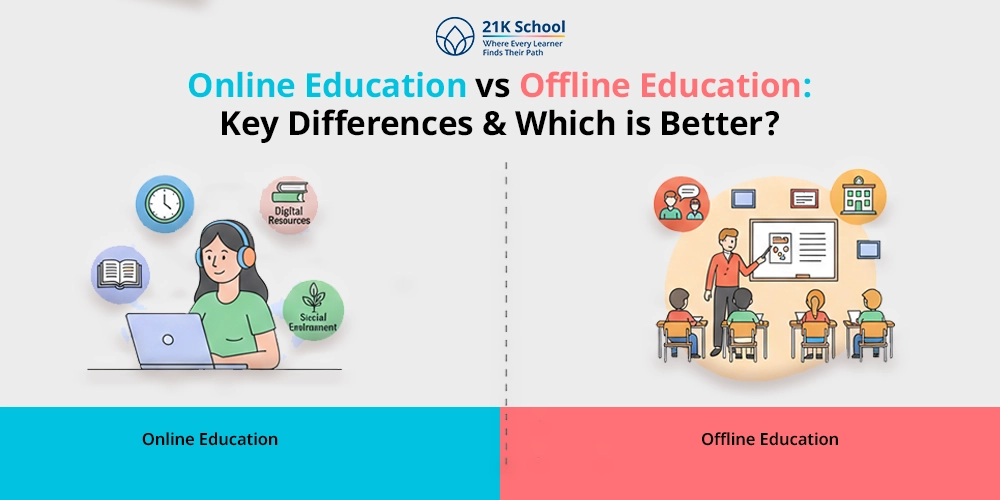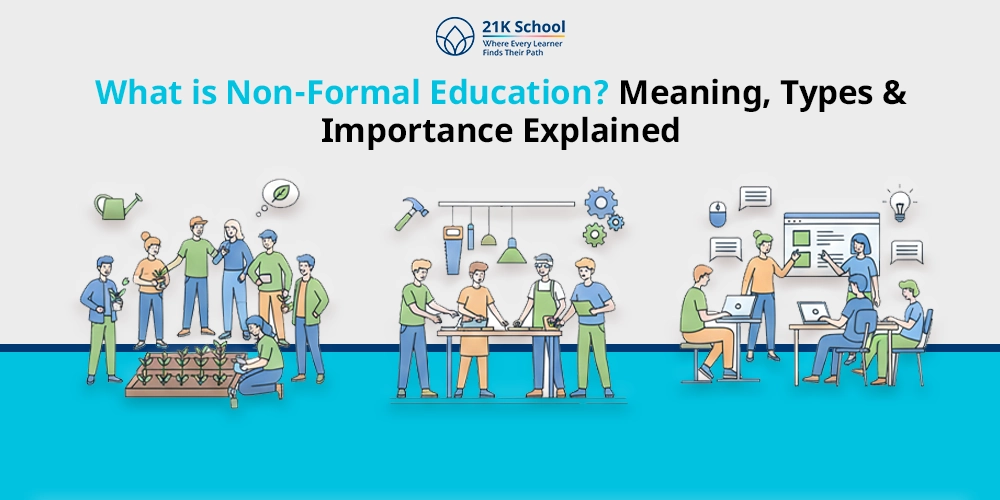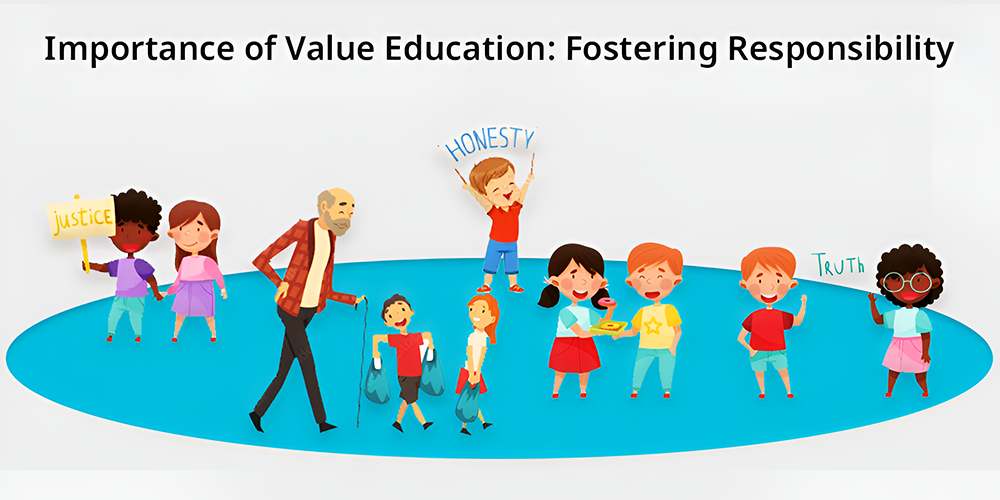
With technological advancement, competition, and cultural diversity has increased rapidly. And along this the functions of education have broadened well beyond just academics.
Education now has the responsibility to build in students integrity, empathy, respect, and a strong sense of responsibility.
Value education provides the solution at this point. Its main objective is to foster in students both a thirst for knowledge and an ability to act with empathy and responsibility.
Value education serves to fill the space between sharpening our minds and developing our emotions. Thereby taking on a key role in current education approaches.
Contents
- What is Value Education?
- 10 Key Importance of Value Education
- 1. Character Development
- 2. Mastering Decision-Making
- 3. Respect for Diverse Cultures
- 4. Instilling Empathy and Compassion
- 5. Assessing Conflicts and Resolutions
- 6. Responsibility as Citizens
- 7. Forming Future Leaders
- 8. Learning Stress Management
- 9. Seek Professional Success
- 10. Forming Long-term Relationships
- To Conclude All
What is Value Education?
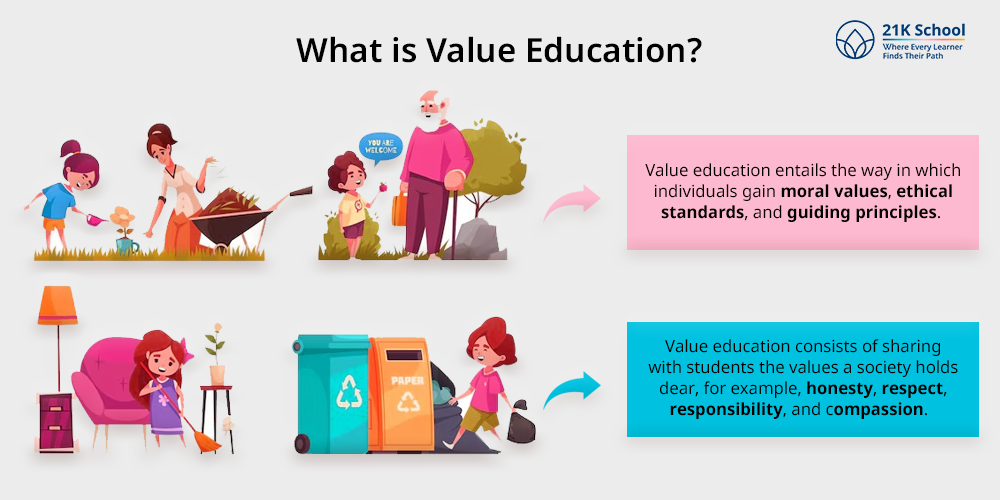
Value education entails the way in which individuals gain moral values, ethical standards, and guiding principles. This would be basically to inform how they behave and what decisions they make.
Value education consists of sharing with students the values a society holds dear, for example, honesty, respect, responsibility, and compassion.
Unlike most traditional schooling topics, value education gives emphasis to nurturing character, emotional equilibrium, and increasing social and civic commitment.
Value education is frequently implemented in curricula using life skills programs. Sequential moral-science classes, interactive exercises, and organizing community activities can render incorporation of these core values.
10 Key Importance of Value Education
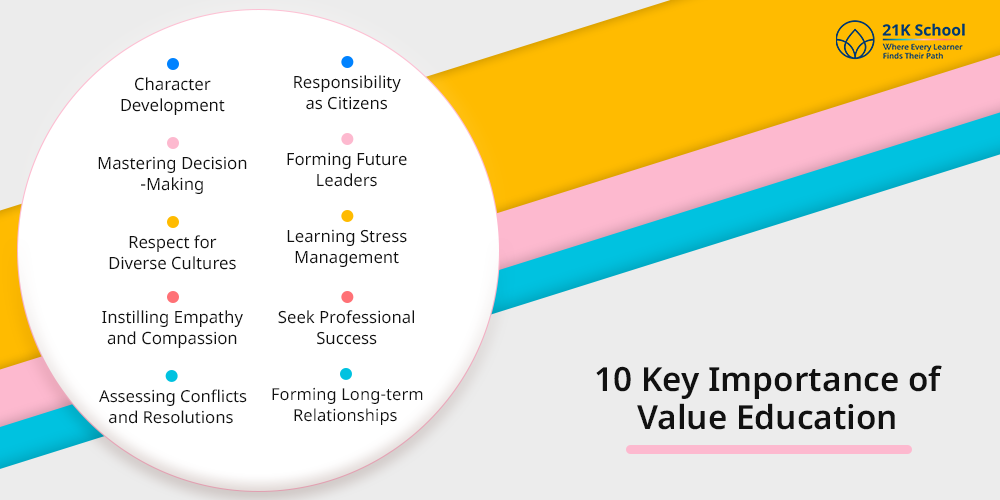
1. Character Development

Building character is at the core of what value education aims to achieve. Value education supports students in telling right from wrong, doing what is honest, and earning others’ trust.
As a result, students find it easier to remain unwavering against challenges and avoid unethical conduct outside and inside the workplace.
- Example: A student happens to step upon a wallet in a school hallway. Regardless of whether anyone had witnessed the pickup, the student handed the wallet into the lost-and-found office. Their honest action is an outcome of the character strengthening they have received through learning moral values.
2. Mastering Decision-Making

With value education, students are skilled in decision-making abilities.
Rather than allowing feelings to dictate reactions, learners approach problems with understanding of values including fairness, empathy, and justice.
The development of critical thinking alongside accountability results from this approach.
- Example: Participating in an online group project, an individual offers to use an online source as a shortcut to save time. A student who has learned about value education insists on producing original work. He discusses the importance of being honest and working hard with the other guy.
3. Respect for Diverse Cultures

When the world is so interconnected, it is very important to both understand and respect different cultural groups.
By teaching respect and open-mindedness, value education works to reduce prejudice and discrimination among people.
Such an approach helps build a sense of unity despite diversity, encouraging more inclusive education, workplace, and community experiences.
- Example: Being part of a diverse classroom, a student joins the celebrations of a peer’s culture and asks polite questions to better understand. As a result, everyone experiences a positive learning environment that is both welcoming and respectful.
4. Instilling Empathy and Compassion

Cultivating empathy, which is feeling with another person, is a basic human value taught within education.
When students tell stories, get involved in the community, and practice reflection, they naturally build compassion and reduce suffering in others.
Feeling empathy in this way deepens social ties and also helps to protect and improve childrens mental health.
- Example: Someone in the class is bullied because of how they look. In place of silence, the student gets involved by helping the bullied student. He then informs a teacher about the situation—showing real empathy and compassion.
5. Assessing Conflicts and Resolutions

We all are well aware that conflicts and disputes are frequent in daily life. So, value education provides young people with the necessary skills to resolve them peacefully.
Through practicing polite speech, delaying reactions, and active listening, students learn how to deal with disputes and preserve their relationships.
- Example: Two students have a disagreement about using a common classroom resource. A student focused on values avoids further conflict by recommending a compromise. And helps reach a solution that maintains respect between opponents.
6. Responsibility as Citizens

A good citizen is clear about both their rights and responsibilities. By means of value education, students are encouraged to take up civic roles, value environmental sustainability, and join community service.
Value education supports students in gaining informed opinions and taking part in improving both their country and the world.
- Example: When a school campaign on the environment begins, a student takes the lead in planning a cleanliness drive in the community. He also invites his classmates to be involved and learn civic responsibilities.
7. Forming Future Leaders

Value education builds future leadership by guiding learners in responsibility, humility, the use of effective communication, and teamwork.
Strategic thinking makes leaders great, but being ethical, empathetic, and having vision are marked characteristics of outstanding leadership.
Student leadership qualities built on integrity in either personal or professional life requires these core traits.
- Example: Elected to class leadership, a student pays attention to the opinions of every peer, particularly those who are less vocal. Because they treat everyone with fairness and include all, they are considered future leaders developed by values.
8. Learning Stress Management
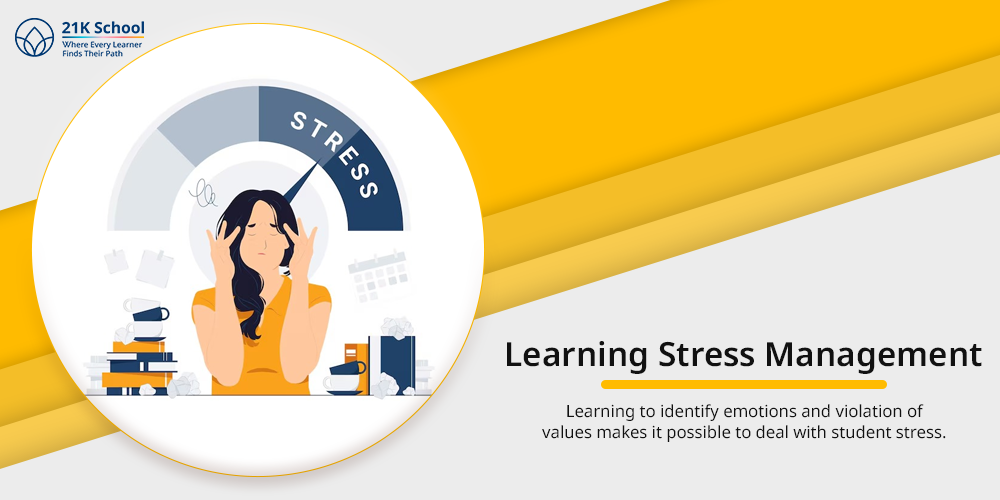
Learning to identify emotions and violation of values makes it possible to deal with student stress. It leads to better results at school and greater psychological well-being.
Emotional resilience is clearly important as today’s environments can be very demanding. Value education encourages students to become more aware of themselves and control their feelings.
- Example: A major exam can make a student feel very anxious beforehand. They remain calm by using deep breathing and positive self-talk, both of which were taught during a value education session.
9. Seek Professional Success

Although many assume that success depends only on technical expertise, employers now highly appreciate integrity, being punctual, teamwork, and leadership.
When professionals have soft skills, nurtured through value education, they become more desirable employees, valued for being efficient and honest.
- Example: An internship allows a student to notice a senior handling data incorrectly. Rather than saying nothing, they inform the authority about the problem, which reflects integrity and is rewarded with organizational trust.
10. Forming Long-term Relationships

Effective, enduring relationships between people, at work or personally, depend on mutual respect, honesty, and compassion.
By receiving value education, students acquire the abilities needed to keep strong, and lasting relationships.
It advantages both their life outside of work and their performance at work.
- Example: Friends have a situation where they do not understand each other correctly. Guided by strong morals, an individual takes the lead in a respectful discussion. And then tries to settle the issue and retain their friendship, demonstrating emotional maturity.
Read on to learn more about characteristics of value education .
To Conclude All
The discussion shows it is essential, rather than optional, to bring value education into the curriculum. The world frequently honors achievement above ethics.
Value education acts as a reminder of what is of real importance: character, kindness, empathy, and responsibility.
It lays down the groundwork both for each individual’s success and for mutual harmony among all. Boarding values in education for students to learn to care for themselves and others is required.
It encourages the development of futures that include wisdom, humanity, and fairness.


